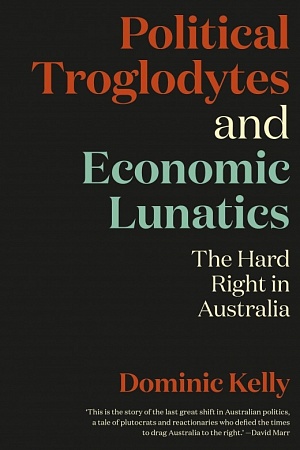The Politics of the Common Good: Dispossession in Australia
NewSouth, $32.99 pb, 304 pp, 9781742236018
The Politics of the Common Good: Dispossession in Australia by Jane R. Goodall
The commons, the common good, the commonwealth: all words for humans’ shared right to the fruits of the earth to sustain their lives, and all words with deep political histories. In The Politics of the Common Good, Jane R. Goodall excavates some of these deep histories, beginning with the Diggers and Levellers of mid-seventeenth-century England who, in protest against landlords’ enclosures, laid claim to the people’s traditional rights to common ground. In different circumstances in Australia in the late 1960s, the Gurindji made a similar claim to their traditional lands at Wave Hill.
Although Goodall sees the shared rights to the earth as the basic common good, she is as concerned with social and cultural commons, with what we are as likely to describe nowadays as public goods – civic buildings, like public libraries and halls, and a sense of ownership of shared familiar social spaces that make people feel part of a community. Over the last half century or so, as neoliberalism has become the dominant policy framework for governments from the national to the local, we have been dispossessed of these commons, hence the book’s subtitle. For example, our cities and country towns are full of beautiful stone and brick civic buildings built by earlier generations. Many have been left to deteriorate or been sold to help pay council bills. Goodall observes: ‘There is no end, it seems, to what we cannot afford as the health of the budget trumps all other concerns and we find ourselves in a situation where human welfare comes second to a budget surplus.’ Just ask anyone on Newstart.
Continue reading for only $10 per month. Subscribe and gain full access to Australian Book Review. Already a subscriber? Sign in. If you need assistance, feel free to contact us.











Leave a comment
If you are an ABR subscriber, you will need to sign in to post a comment.
If you have forgotten your sign in details, or if you receive an error message when trying to submit your comment, please email your comment (and the name of the article to which it relates) to ABR Comments. We will review your comment and, subject to approval, we will post it under your name.
Please note that all comments must be approved by ABR and comply with our Terms & Conditions.